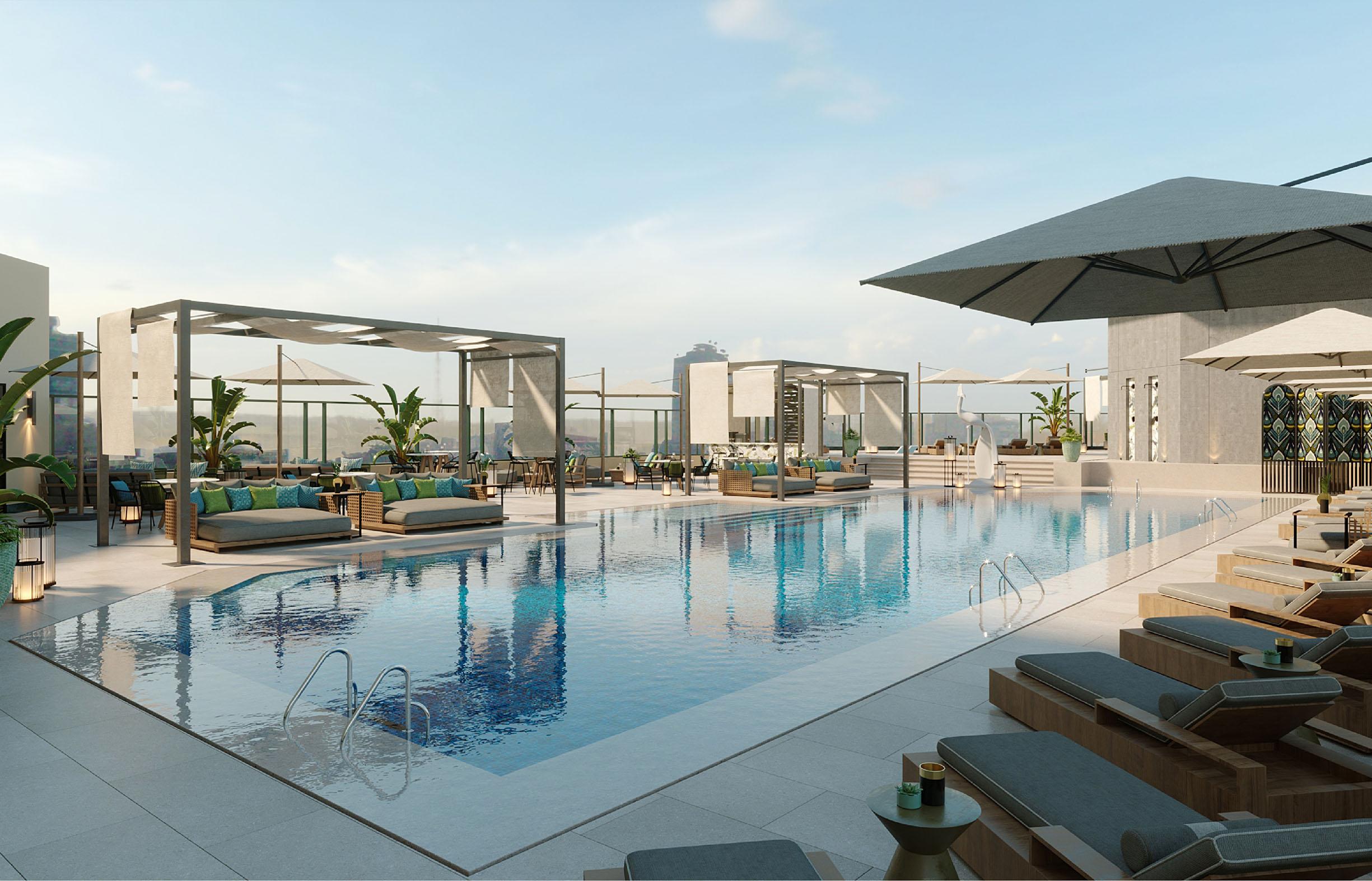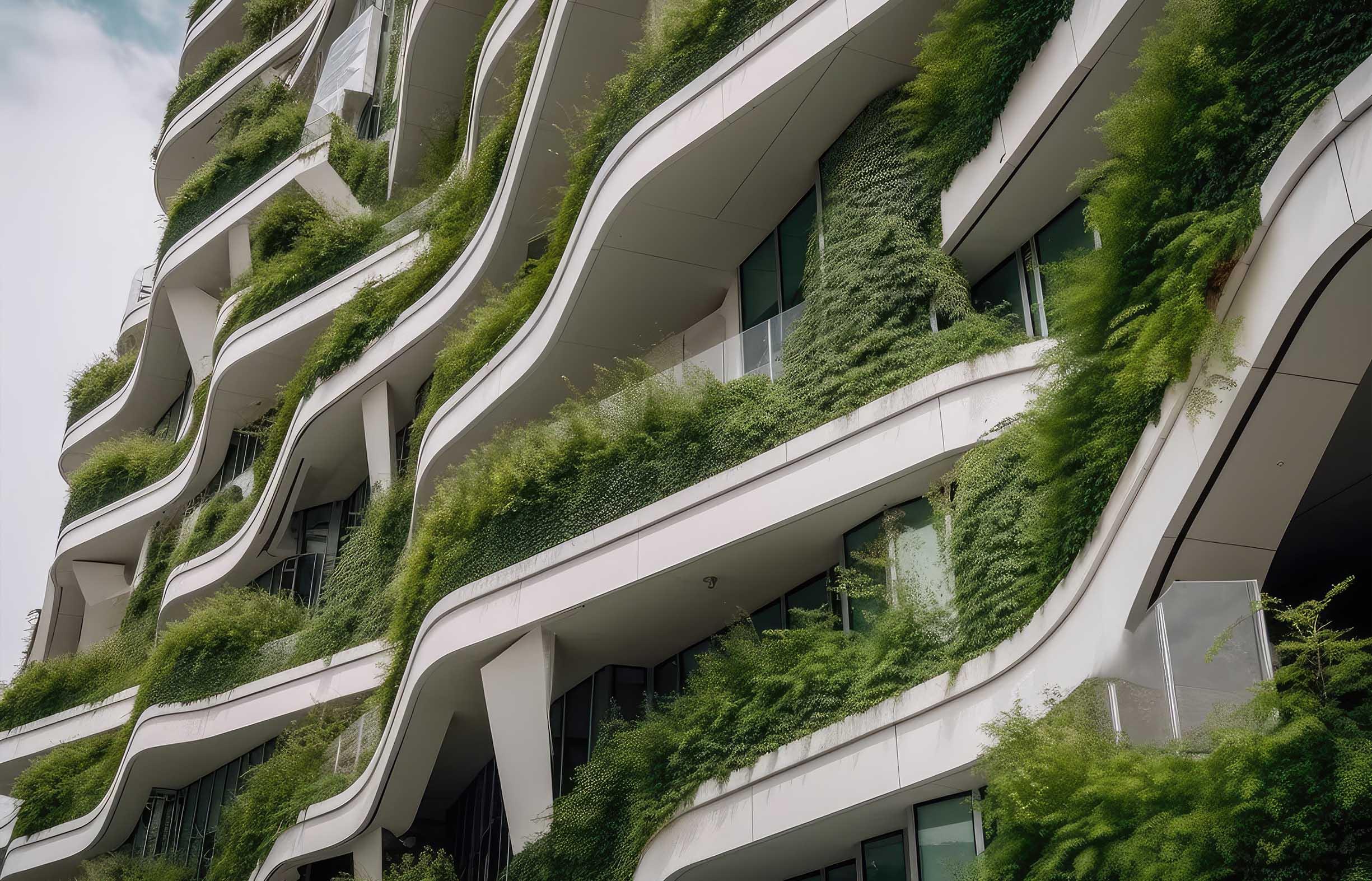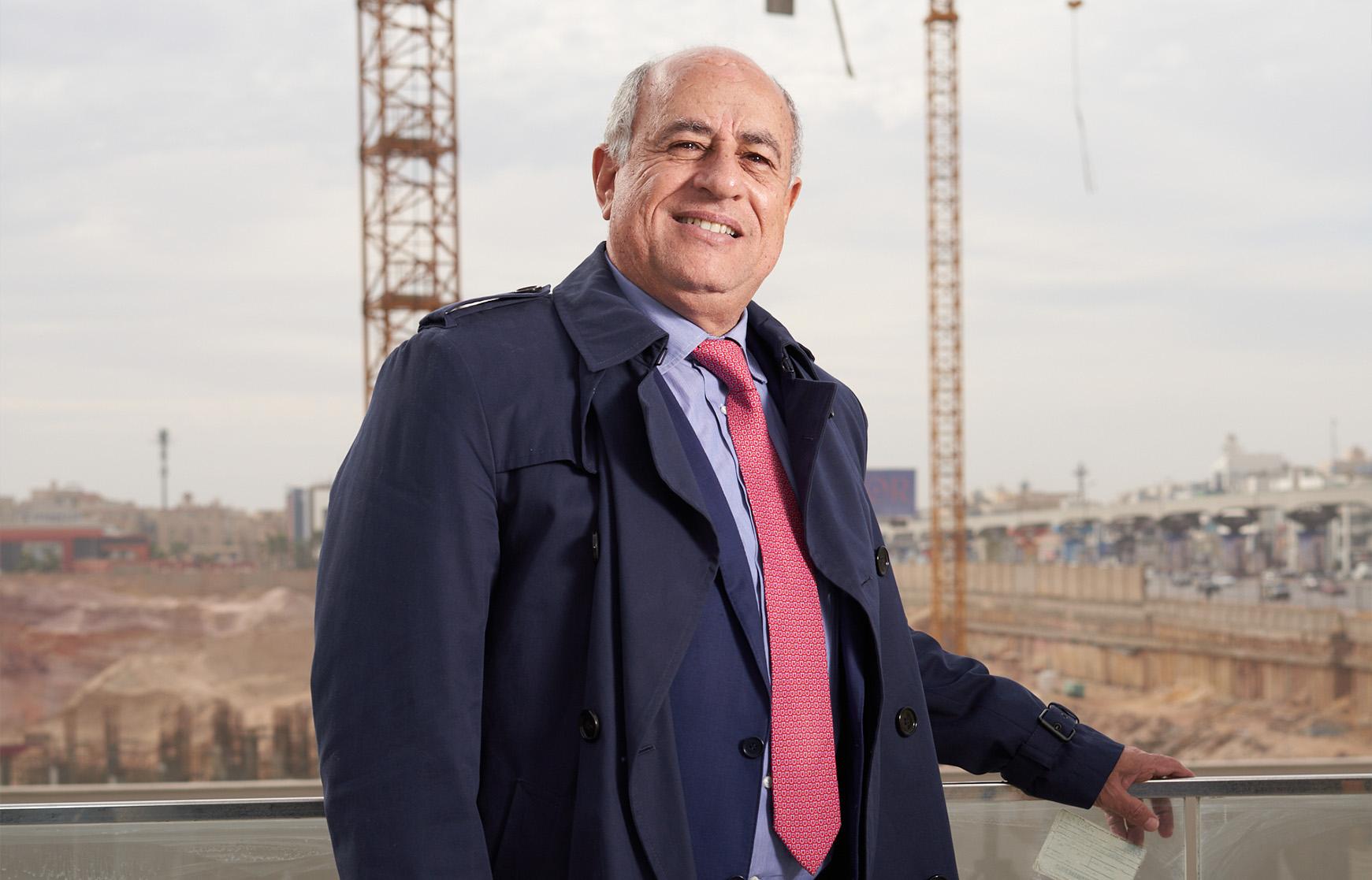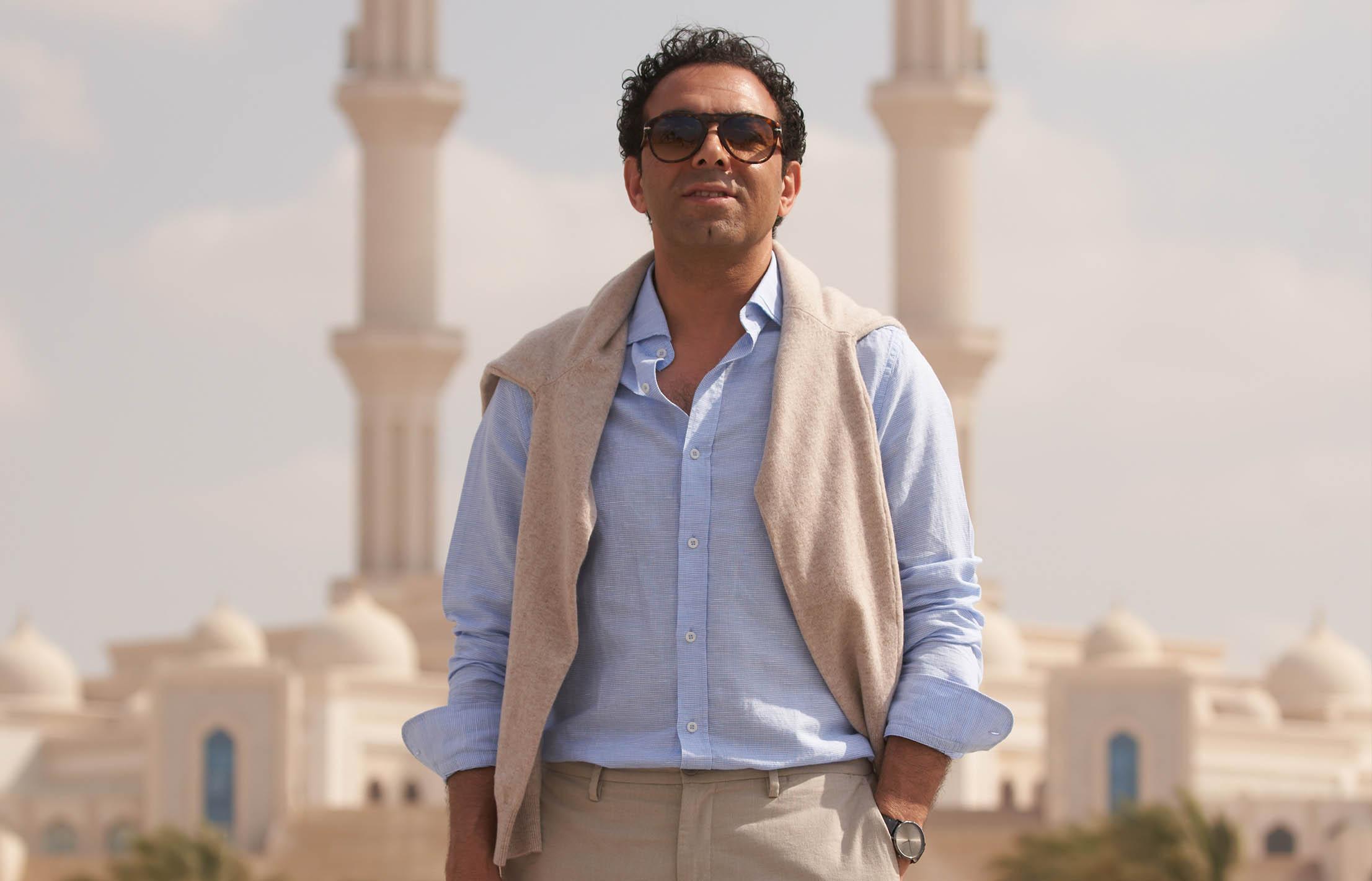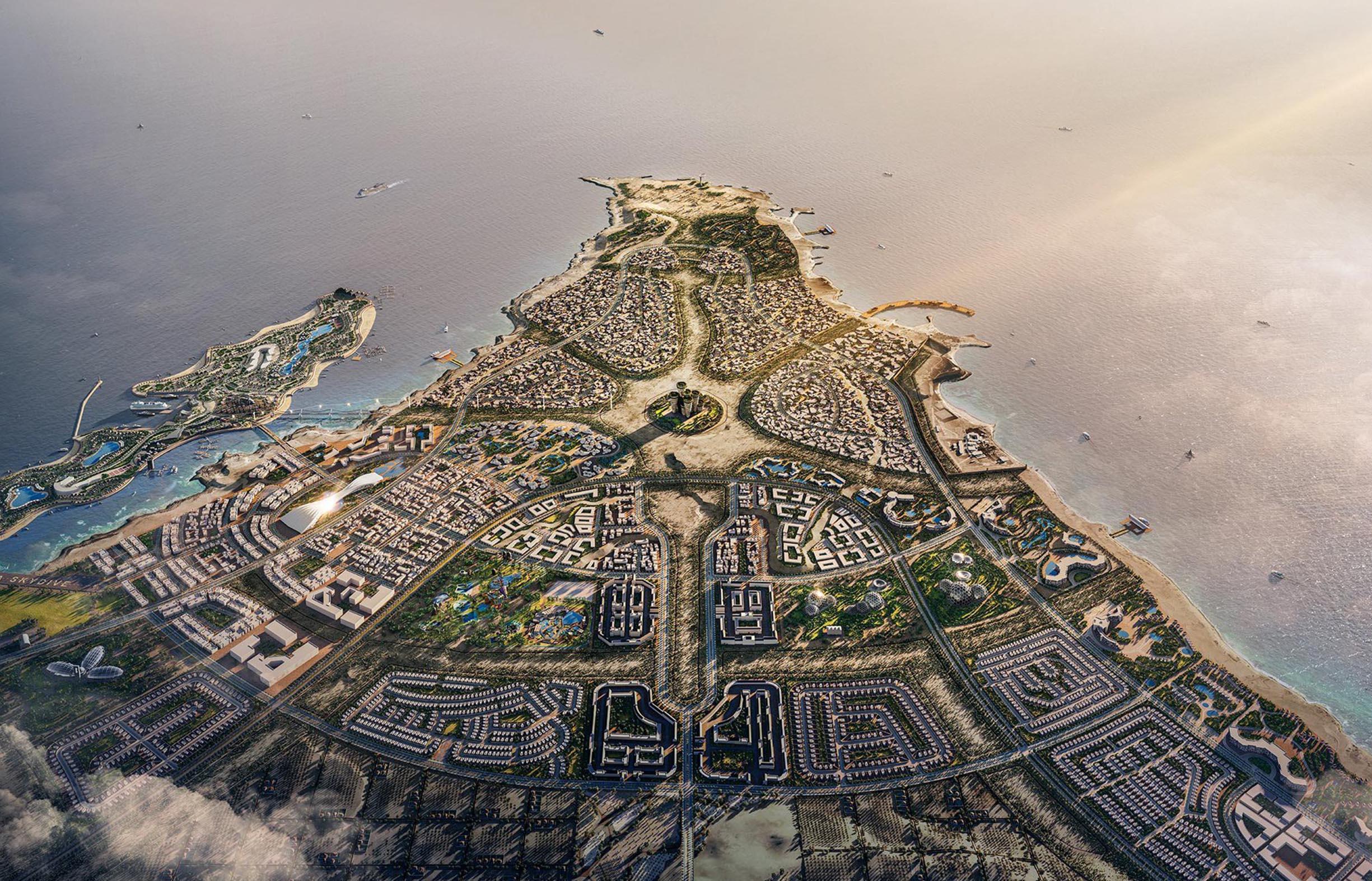
Written by: Mahmoud Demerdash
Date: 2024-03-05
The Unveiling of A Coastal Development
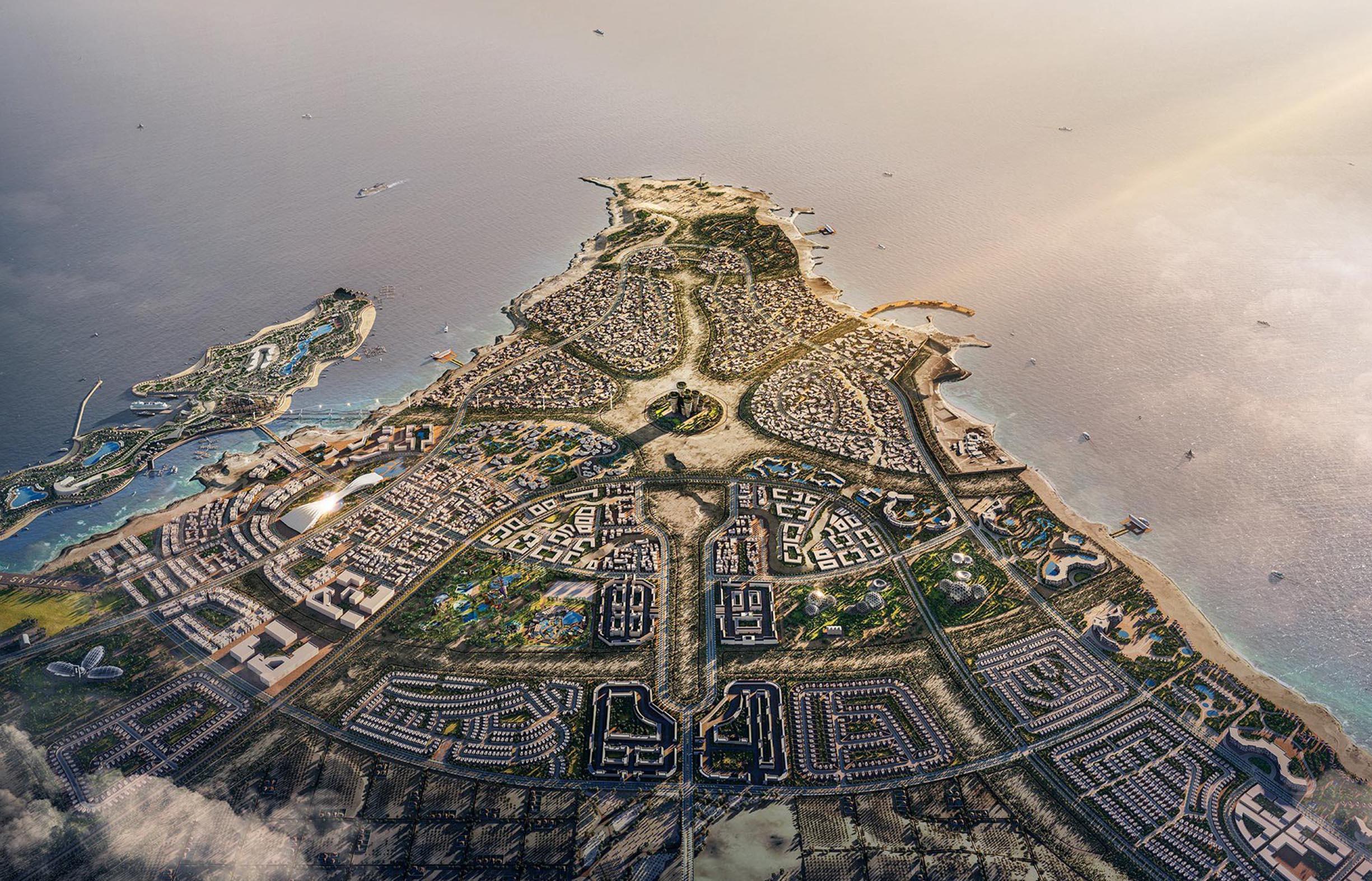
Emirati investors have reportedly acquired the rights to develop Egypt's North Coast city of Ras El-Hekma in a noteworthy development. Egypt and the United Arab Emirates aim to transform the coastal town into a renowned global tourist destination featuring an array of developments such as an airport, hotels, commercial centers, and residential areas.
The company ADQ is the driving force behind this initiative, spearheading the development of Ras El-Hekma, leveraging its extensive expertise, USD 35 billion investment commitment, and strategic partnerships to position the coastal region as a leading international destination with a focus on economic growth, sustainable practices, and cutting-edge smart city solutions.
ADQ, established in 2018, is an Abu Dhabi-based investment and holding company with a diverse portfolio spanning critical sectors of the United Arab Emirates economy. As a strategic partner of Abu Dhabi's government, ADQ aims to accelerate the Emirates' transformation into a globally competitive and knowledge-based economy. Its investments cover a wide range of industries, including energy and utilities, food and agriculture, healthcare and life sciences, mobility and logistics, among others. ADQ plays a pivotal role in supporting economic development and driving innovation across various sectors in the United Arab Emirates.
Despite speculation surrounding the project's scale, the deal's terms are to acquire development rights and not a purchase of land. The difference between both is that acquiring development rights involves obtaining specific permissions and entitlements to develop a property without owning the land outright. In contrast, outright purchasing land entails buying full ownership and control of the land parcel, including any structures on it. In the context of ADQ's plans for Ras El-Hekma, acquiring development rights implies obtaining the necessary approvals and permissions to transform the coastal region into a leading destination without necessarily owning the entire land outright. This approach allows ADQ to play a pivotal role in boosting Egypt’s economic development while collaborating with the Egyptian government and not being the owner of the land.
Found on the ADQ website article regarding the deal, Managing Director and Chief Executive Officer of ADQ, Mohamed Hassan Alsuwaidi, said: “ADQ is a long-standing investment partner in Egypt, and we have demonstrated our ability to select opportunities that are aligned with our investment framework and benefit the Egyptian economy. This investment underscores our commitment to developing Ras El-Hekma into one of Egypt’s most attractive coastal destinations through the enablement of mega-infrastructure and development projects, working with partners such as Modon Properties and Talaat Moustafa Group, which will deliver value across multiple sectors of Egypt’s vibrant economy.”

Taken from an Al-Ahram Online article regarding the deal, Mohamed Badrawi, a member of the Egyptian parliament's budget committee, emphasized its significance, envisioning it as a global city on Egyptian territory. “It will be a global city on Egyptian soil. Development of the area has been discussed since at least 1975, so it is hardly a new topic. The project will be developed in the same way the New Administrative Capital and New Alamein City were implemented.” Also cited in the article was Khaled Tantawi, a member of parliament’s Defence and National Security Committee, telling Al-Ahram Weekly that “the state has designated a 5.4 km stretch of land for multi-use building and plans to construct 10,000 housing units and 50 hotels and a further 7.3 km has been allocated for the development of urban communities with a variety of activities that could potentially be privatized.”
According to the ADQ statement, the critical aspects of this agreement encompass a substantial USD 35 billion investment. Notably, the Egyptian government retains a 35 percent stake in the Ras El-Hekma development, establishing a robust public-private partnership. In a diversified approach, ADQ plans to allocate USD 11 billion to prime projects across Egypt, reflecting a commitment to contribute across various economic sectors. The urban development scale of Ras El-Hekma spans a massive 170 million square meters, encompassing tourism amenities, a free zone, and an investment zone.
Coastal development holds immense importance as it combines economic, environmental, and recreational aspects. Economically, coastal areas often serve as crucial trade hubs, supporting industries like shipping, fisheries, and tourism. Environmentally, responsible coastal development allows for the preservation and enhancement of ecosystems, contributing to biodiversity and mitigating climate change impacts. Furthermore, well-planned coastal development provides opportunities for recreational activities, fostering tourism and enhancing the quality of life for coastal communities. Balancing these factors is crucial for sustainable coastal development, ensuring the longevity of economic benefits while safeguarding natural resources and habitats. Egypt is endowed with an extensive stretch of coastal land, presenting significant opportunities for development.
While each development project is unique, several modern examples of coastal city developments share some similarities with the vision of transforming a coastal area into a significant economic and tourist destination. The Palm Jumeirah, located in Dubai, is an artificial archipelago that was constructed in the shape of a palm tree, extending into the Arabian Gulf. Developed by Nakheel Properties, the project aimed to create a world-class residential and tourism destination. It involved extensive land reclamation, shaping the island, and constructing various amenities such as hotels, resorts, and residential properties. The Palm Jumeirah has become an iconic landmark and a significant contributor to Dubai's tourism and real estate sectors. Another example is the Songdo International Business District in Incheon, South Korea. Songdo, often referred to as a "smart city," was a planned urban development on reclaimed land along the waterfront. The project aimed to create a sustainable and technologically advanced city with a focus on business, residential living, and environmental considerations. The development included modern infrastructure, green spaces, and advanced technologies integrated into the urban fabric. A final example is the Canary Wharf development in London. Once a disused docklands area, it underwent a significant transformation into a primary business and financial district. The project involved extensive urban regeneration, including the construction of modern skyscrapers, office buildings, residential spaces, and recreational facilities along the River Thames. Canary Wharf has become a global financial hub, attracting businesses, residents, and visitors to the revitalized waterfront area. The development of coastal cities is pivotal for the sustained long-term growth of a country's economy and aspirations.
Work on the Ras El-Hekma development is expected to commence in early 2025, providing a timeline for the initiation of the project. ADQ claims to be focusing a keen eye on environmental stewardship and modern development practices. The emphasis on preserving local ecosystems and creating an attractive, eco-friendly living and working environment aligns with recent trends in Egyptian projects focusing on responsible development. The North Coast of Egypt has attracted significant attention from worldwide investors and tourists, underscoring its potential for fostering fruitful international collaborations. Tarek Shoukri, the deputy chair of the Egyptian parliament’s Housing Committee, told Al-Ahram Weekly that “The location of Ras El-Hekma on Egypt’s Mediterranean Coast makes it a paradise on Earth and an ideal destination for tourism and big investors,” Ras El-Hekma is poised to be the first of its kind, a premier Mediterranean destination boasting unparalleled attractions such as luxury hotels, yacht marinas, and top-tier entertainment facilities.

